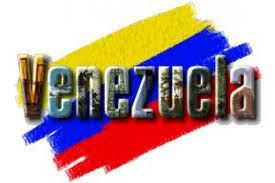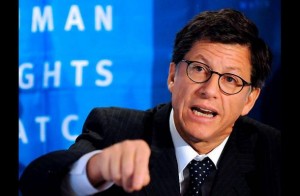
Una corriente chavista que integra el gobernante Partido Socialista Unido de Venezuela (PSUV) exigió a la autoridad electoral del país activar el referéndum revocatorio contra el presidente Nicolás Maduro. El reclamo fue realizado por el sector Marea Socialista, una agrupación emergente de la izquierda venezolana liderada por ex ministros del gobierno de Hugo Chávez que mantienen diferencias con el actual mandatario después por la muerte de su referente político.
Marea Socialista está liderada por los ex ministros del gobierno de Chávez Héctor Navarro, Ana Elisa Osorio y Gustavo Márquez. Entre otras figuras que integran el sector está el ex general del Ejército Clíver Alcalá y ex ministro de Planificación y mentor intelectual de Chávez, Jorge Giordani.
Además los disidentes del PSUV condenaron los despidos de los funcionarios públicos señalados de haber firmado las solicitudes preliminares del referéndum revocatorio requerido por la oposición venezolana. El supuesto despido de funcionarios fue una orden impartida presuntamente por parte de varios líderes del partido gobernante, por considerar que quienes respaldan el revocatorio no pueden ser parte de la "revolución bolivariana" y deben dejar sus cargos en los organismos del Estado.
También este pasado lunes de julio se dieron a conocer los resultados de la encuesta de opinión Venebarómetro de Caracas, que estimó que 88% de los entrevistados apoyan la pronta remoción de Maduro del poder, y que 58% se dijeron dispuestos a firmar las planillas de solicitud del revocatorio a pesar de los riesgos que ello pudiera comportar para cada uno de ellos.
Marea Socialista considera que la situación no es fácil, pero que el revocatorio es impostergable para dar una salida pacífica a la crisis política y evitar salidas no deseadas o graves desenlaces, cuyos signos ya se advierten. El Estado debe garantizar el ejercicio del derecho constitucional de los ciudadanos a participar y protagonizar la acción confirmatoria o revocatoria del presidente, sostuvo la organización en un escrito entregado en la sede del Consejo Nacional Electoral (CNE) el lunes 18 de julio.
- Hits: 7800

 La fase decreciente del precio de las materias primas afectó la composición sectorial de la inversión extranjera
La fase decreciente del precio de las materias primas afectó la composición sectorial de la inversión extranjera
